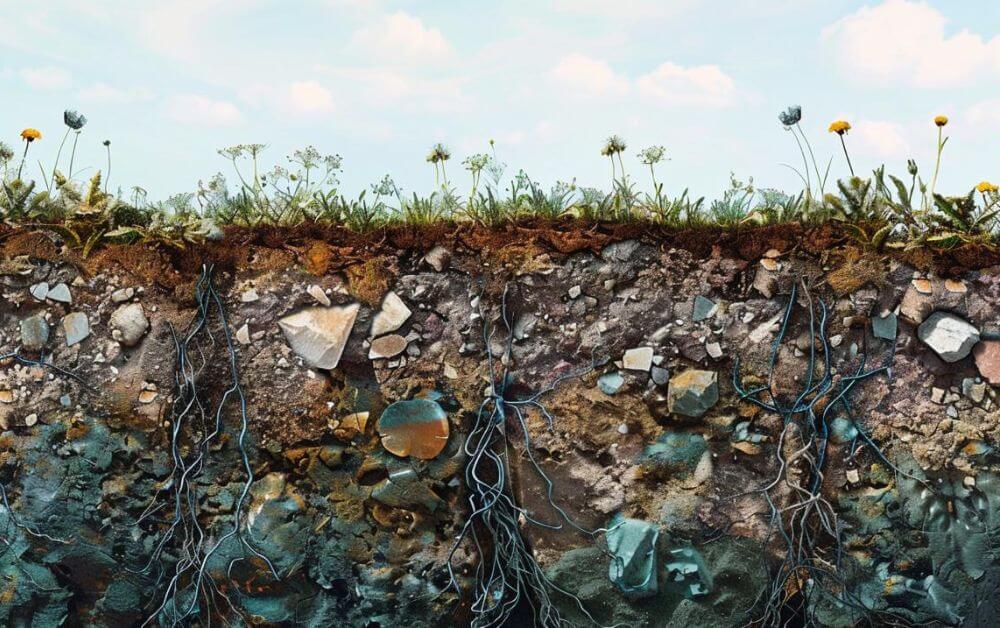All plants extract minerals and nutrients from the soil they’re growing in, but some appear to be able to extract metals as well, or at least metal ions that we can in turn extract from the plants. If we can do this at scale, we can use phytomining to get the metals we need to build the batteries we use to power our lives.
Here are some links to experiments underway on phytomining, and the promise of what this might bring in the future:
TRANSCRIPT
It really is quite old-fashioned to have to dig down into the Earth to extract the minerals and the metals that we need to live our modern lives. I’m thinking especially here of some of the rare Earth minerals and metals that we need for our batteries like nickel-cadmium and lithium.
But is there another way? I say, old-fashioned, what else could we do?
Well, welcome to ThrowForward Thursday. My name is Graeme Codrington, and we jump into the future every week to see what’s going on there and sometimes discover the future is not that far away. Because today I want to talk about phytomining. Ways in which we can extract not just minerals, but also metals from plants.
Phytomining. It’s a made-up word, phyto meaning plants, and mining meaning mining. And what it is, is the ability of some plants to not just extract minerals and nutrients in order for them to grow. But we’ve discovered that there are, in fact, a few plants that extract metal elements as well from the Earth as they grow. And in some trees, this allows us to extract metal from the sap of the tree. In other plants, it requires us to dehydrate those plants and then crush them and have an extractive process to get metals out of them.
Yes, phytomining. It’s experimental at this stage, and the biggest issue is not understanding the biology. I think that makes sense. The biggest issue is working out how we might be able to do it at scale from soils that are metal-rich using the types of plants that would be able to extract that as they grow. But scale actually is not something that mines and miners have worried about. We’ve built huge mines to get at these metals before, especially those that power the batteries that power the world we live in.
I’m going to put a few links in the notes of this episode or in the bio so that you can just have a look at some of the research that’s being done at the moment, and a few of the experiments that are already underway. I wonder what else we might have to rethink and unlearn about how we do things in our world as we go into a future where we are attempting to protect the planet and protect our lifestyles at the same time.
Thanks, as always, for joining me in the ThrowForward Thursday studio. I’ll see you again next week in the future.
At TomorrowToday Global, we help clients around the world analyse major global trends, developing strategies and frameworks to help businesses anticipate and adapt to market disruption in an ever-changing world.
Subscribe to our team’s weekly newsletter filled with insights and practical resources to help you succeed in the future of work.
For all enquiries, please use this email: [email protected]
Graeme Codrington, is an internationally recognised futurist, specialising in the future of work. He helps organisations understand the forces that will shape our lives in the next ten years, and how we can respond in order to confidently stay ahead of change. Chat to us about booking Graeme to help you Re-Imagine and upgrade your thinking to identify the emerging opportunities in your industry.
For the past two decades, Graeme has worked with some of the world’s most recognised brands, travelling to over 80 countries in total, and speaking to around 100,000 people every year. He is the author of 5 best-selling books, and on faculty at 5 top global business schools.


